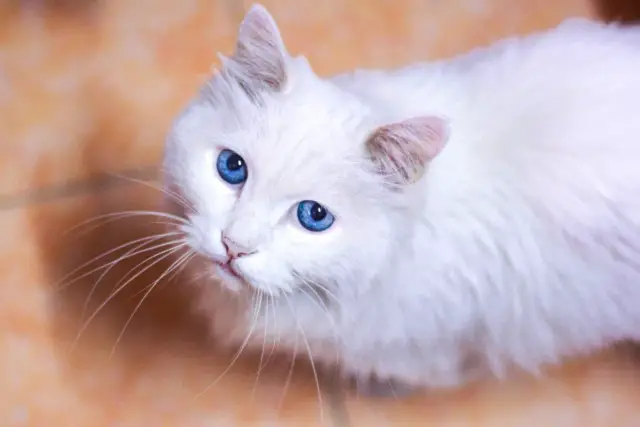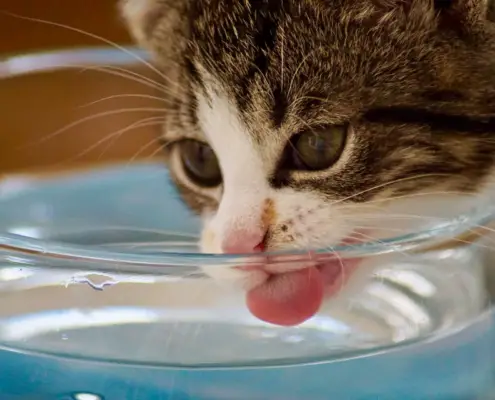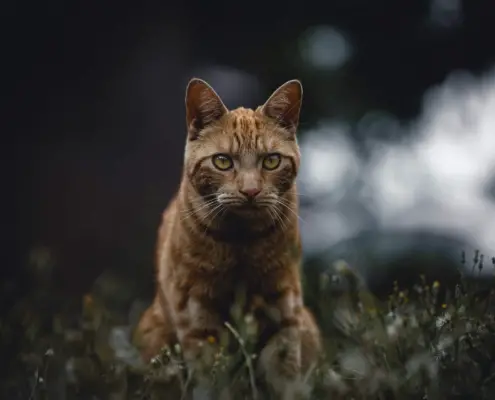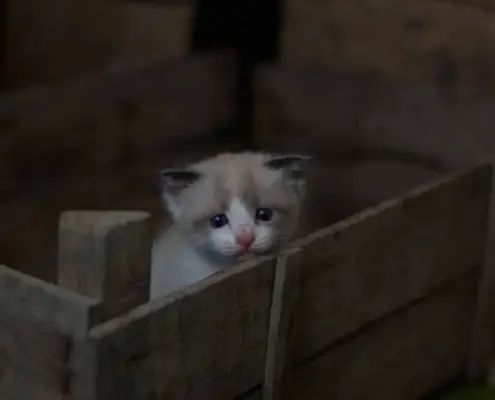
Cats have long captivated the hearts and imaginations of humans with their mysterious and independent nature. But do cats have personalities? Contrary to popular belief, cats indeed have unique personalities that shape their behavior and interactions with the world around them. Understanding these personality traits can help cat owners form deeper bonds with their feline companions and provide them with the care and environment they need to thrive.
Understanding cat behavior and personality
To comprehend a cat’s personality, it is essential to first understand their behavior. Cats are known for their independence, agility, and keen senses. They possess a natural instinct to hunt, explore, and mark their territory. These behaviors are deeply rooted in their evolutionary history as solitary hunters. However, each cat’s personality is shaped by a combination of genetic predispositions and environmental factors.
Factors that shape a cat’s personality
Several factors contribute to the development of a cat’s personality. Genetic factors play a significant role, as certain breeds are known to exhibit specific traits. For example, Siamese cats are often described as vocal and attention-seeking, while Maine Coons are known for their friendly and sociable nature. However, even within a breed, individual cats may display variations in their personalities.
Environmental factors also play a crucial role in shaping a cat’s personality. Early experiences, socialization, and the quality of care provided by their human companions all influence a cat’s behavior. Cats that are exposed to positive experiences and regular interactions during their early development stages are more likely to grow up confident, well-adjusted, and sociable.
Common personality traits in cats
While each cat is unique, there are common personality traits that can be observed in many feline companions. Some cats are naturally outgoing and friendly, often seeking attention and affection from their owners. These cats enjoy being the center of attention and are more likely to engage in interactive play and seek physical contact.
On the other hand, some cats are more reserved and independent. They prefer a quieter environment and may not enjoy being held or cuddled as much. These cats often have a strong sense of territoriality and may need more space and privacy.
Another common personality trait in cats is their level of curiosity. Some cats are highly curious and constantly explore their surroundings, while others are more cautious and prefer to observe from a safe distance. Understanding a cat’s curiosity level can help create an environment that stimulates their senses and provides opportunities for mental and physical enrichment.
How to identify your cat’s personality
Identifying your cat’s personality requires observing their behavior and interactions over time. Pay attention to their preferences, reactions to different stimuli, and overall temperament. Does your cat enjoy interactive play? Do they seek attention or prefer to be alone? Are they easily startled or calm in new situations? These observations can provide insights into your cat’s personality and help you tailor their environment and interactions accordingly.
Tips for bonding with different cat personalities
Bonding with a cat is a gradual process that requires patience and understanding, especially when dealing with different personality types. For outgoing and attention-seeking cats, providing regular play sessions, interactive toys, and plenty of affectionate interactions can help strengthen the bond. These cats thrive on attention and enjoy being part of their owner’s activities.
For more reserved and independent cats, it is important to respect their need for personal space and privacy. Creating quiet areas where they can retreat to, providing vertical spaces like cat trees, and engaging them in independent play with puzzle toys can help them feel secure and build trust.
Myth vs. reality: Debunking common misconceptions about cat personalities
There are several misconceptions surrounding cat personalities that need to be debunked. One common myth is that all cats are aloof and unaffectionate. While it is true that some cats may be more independent, many cats are quite affectionate and form strong bonds with their owners. Understanding and respecting their individual personalities can help foster a stronger connection.
Another misconception is that all cats are low-maintenance and require minimal attention. While cats are generally more independent than dogs, they still need social interaction, mental stimulation, and regular care. Neglecting these needs can lead to behavior problems and a strained relationship with your feline companion.
Cat personality tests: Are they accurate?
Cat personality tests claim to provide insights into a cat’s personality based on their behavior and reactions to certain stimuli. While these tests can be fun and somewhat informative, it is important to approach them with caution. Cats are complex creatures, and their behavior can vary depending on the context and individual preferences. Therefore, it is best to rely on direct observation and interaction with your cat to understand their unique personality.
Embracing the unique personalities of our feline friends
Cats are fascinating creatures with distinct personalities that enrich our lives. Understanding and embracing their unique traits can deepen the bond between humans and cats. By observing their behavior, providing appropriate care and enrichment, and respecting their individual needs, we can create a harmonious environment where our feline friends can thrive.
So the next time you interact with your cat, take a moment to appreciate their unique personality and the joy they bring to your life. Embrace the paw-some truth that cats do indeed have personalities, and by understanding them, we can become better companions to our feline friends.
If you enjoyed my article, I would appreciate you sharing it with your network.

Sima Ndlebe
Sima writes for CatBuzz. He is interested in Cats, Health and Fitness, and Entrepreneurship.
Published: 30 October 2023



